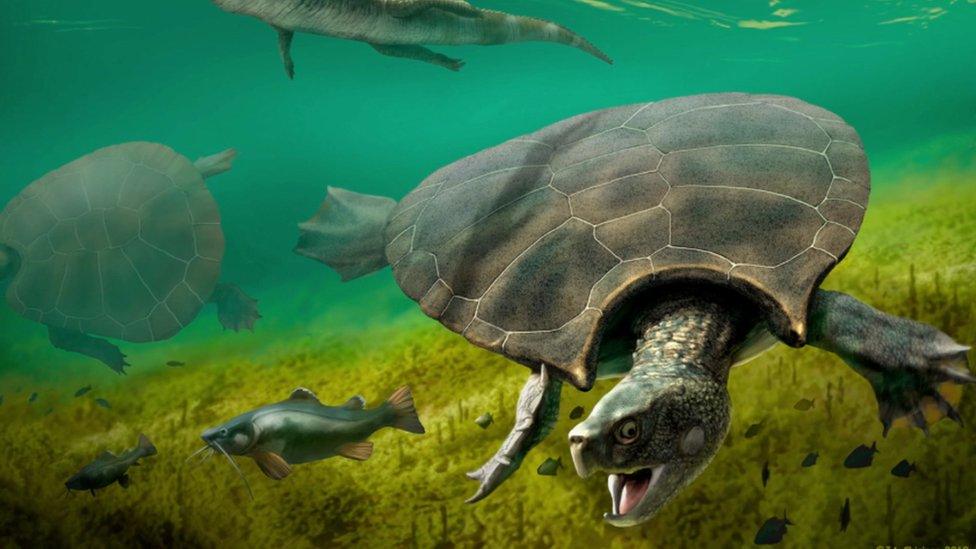Scientists find turtles tricked by 'stinky plastic' in the ocean
- Published
- comments
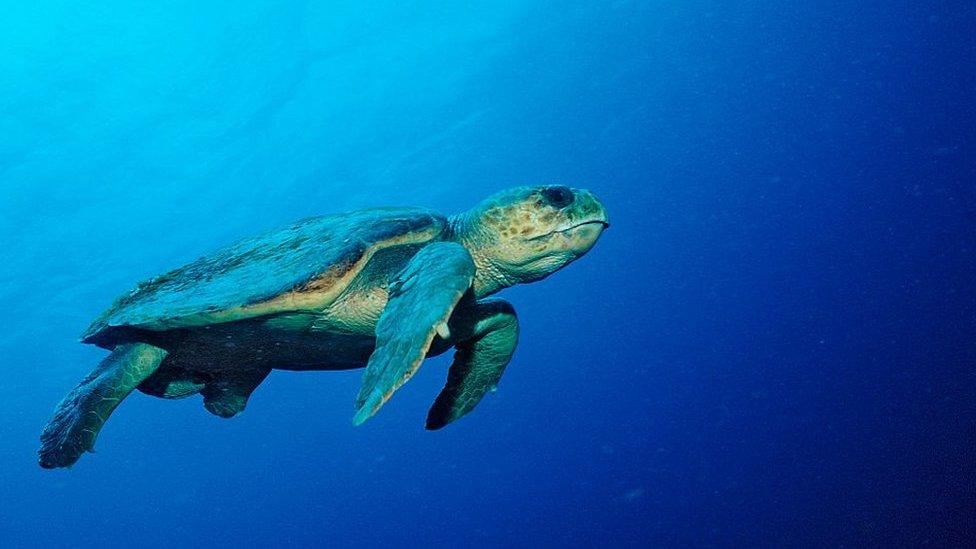
Loggerhead turtles seem to be attracted to the scent of smelly plastic - mistaking the odour for food
Loggerhead turtles are attracted to plastic that smells like food, a new study has found.
Scientists studied the reactions of 15 young loggerhead turtles to different kinds of plastic they might find in water.
The turtles ignored clean plastic and the smell of water, but were drawn to plastics that smelled like food.
When they discovered "stinky" plastic, they would poke their noses out of the water and start searching for the source.
Plastics in the ocean can trap microbes and algae which then release a food-like odour. The researchers think this is what is attracting the turtles.
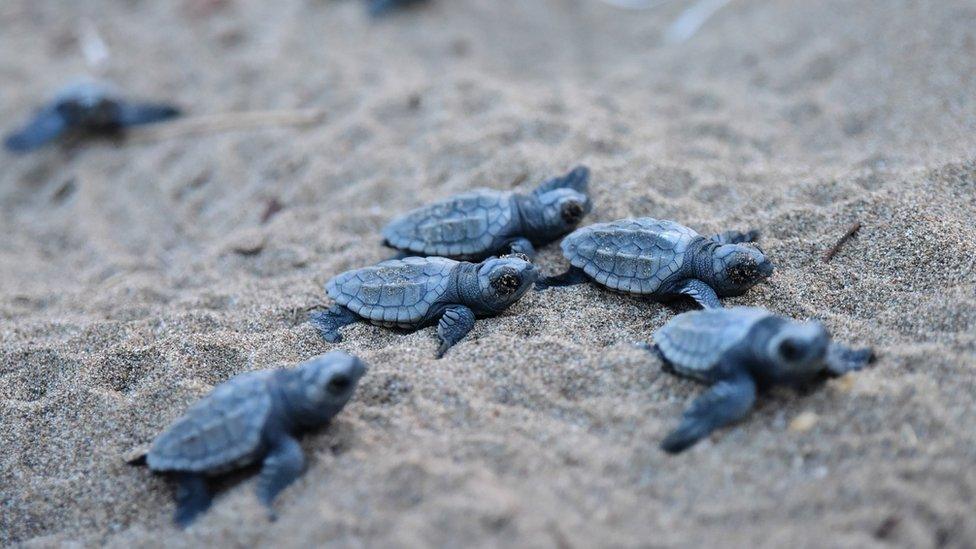
Researchers raised 15 young loggerhead turtles during the study before releasing them into the wild
In the past, scientists and environmentalists assumed that marine life was attracted to plastic because of the way it looks - thinking it might look like their prey.
But this study has proved that it's more than just the way plastic looks; it's the way it smells too.
One of the authors of the study, Dr Kenneth J Lohmann, said: "It's common to find loggerhead turtles with their digestive systems fully or partially blocked because they've eaten plastic materials."
The scientists' concern is that turtles may be encouraged to swim, search for food or eat in areas of the ocean that have more smelly plastic.
The best thing we can do is to keep plastic from getting into the ocean at all.
Fifteen loggerhead turtles in captivity were used for the research - none of them ate plastic during the experiment.
Once the study was finished, the turtles were released back into the wild.
- Published24 February 2020
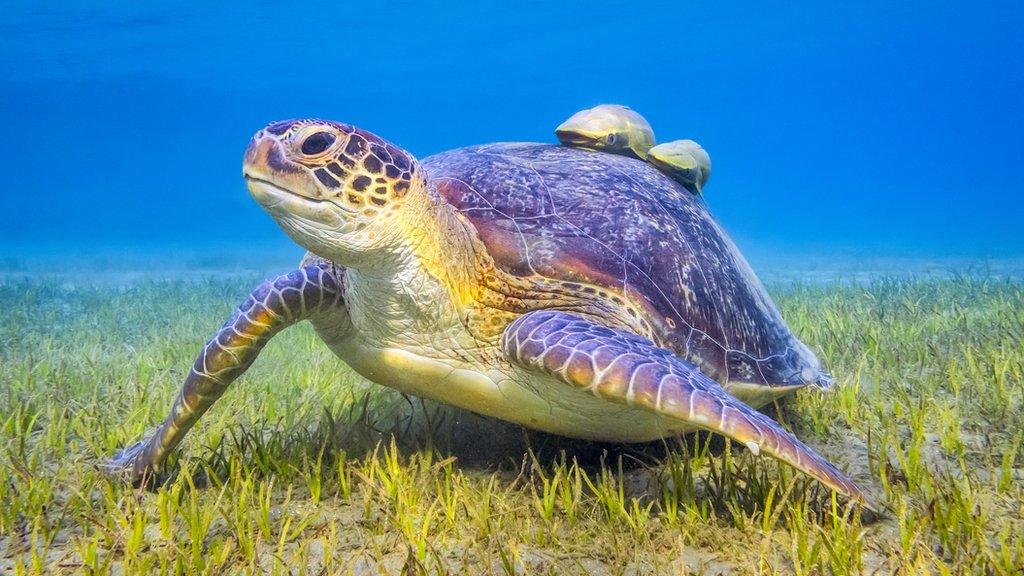
- Published30 March 2019
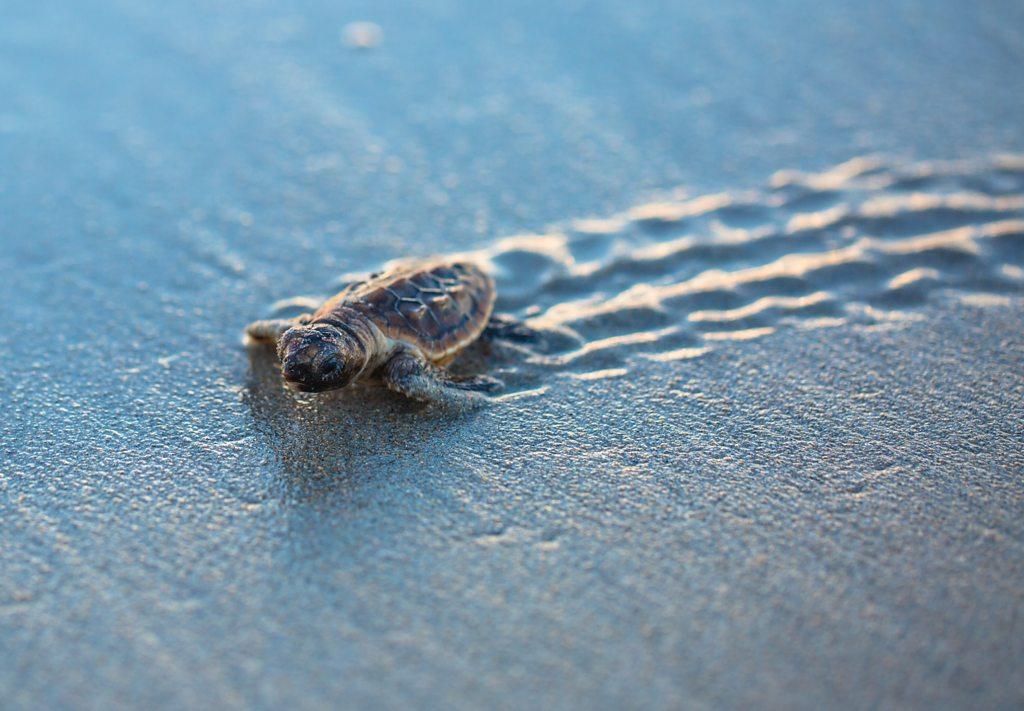
- Published13 February 2020
